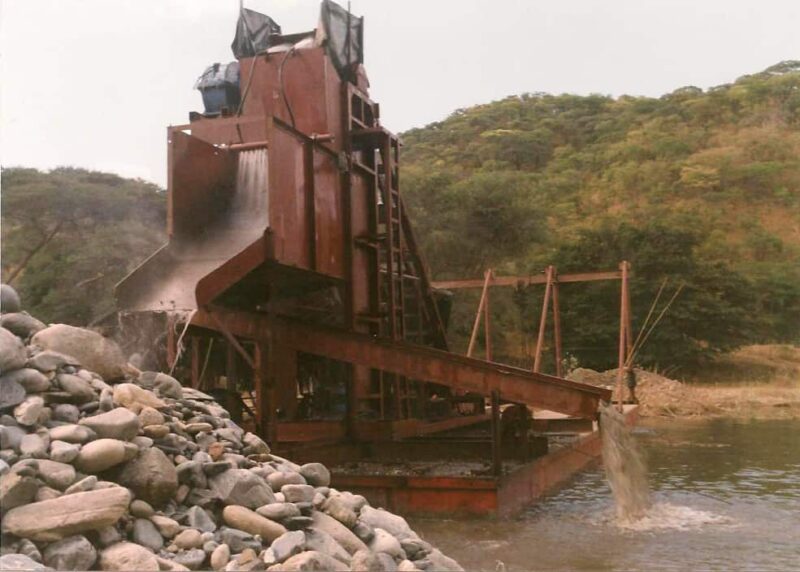Felix Mwakyembe, a Tanzanian journalist based in the province of Mbeya, was a reporter with the Raia Mwema newspaper back in 2010 when he produced a few stories on a Chinese-run gold mining operation in Chunya district, about 960 kilometers southwest of Dar es Salaam in the country’s southern highlands.
The stories alleged that the company was polluting the Zira and Lupa Rivers, which provide fresh water to more than a dozen villages downstream. Further, it was reportedly violating Tanzania’s Environmental Law, which prohibited activities within 60 meters of the rivers’ edge, and also by destroying vegetation on the river banks.
The Tanzanian government apparently agreed, because it subsequently put an end to the activities of the Epoch Gold Mining Company, as confirmed by this Ministry of Water report, and evicted the company from the district.
“Of course it was the story [in the newspaper] that got the government to stop all the mining activities, so it was important,” explained Lucas Malangalila, director of the Kalangali Agriculture and Environmental Advocacy Organization, who was a source for Mwakyembe. “I saw the problem with my own eyes, but there was no government official ready to take action, so that’s why I turned to [the media].”
Mwakyembe reported that villagers living along the river were reporting intestinal problems, but many could not afford proper health care. The mining company was apparently operating under a national government license, but there were questions about its Environmental Impact Assessment.
Partly as a result of such reporting, Tanzania later went on to revise its mining laws, passing new legislation in 2017 in an attempt to tighten up regulations.
Mwakyembe said there are some amendments to the legislation that lead him to believe his reporting partly contributed to the revisions. The Mining Act of 2017 established the Natural Wealth and Resources Act, which, among other things, has some provisions that reflect issues raised in his stories. For example, sections on citizen participation and National Assembly approval, give local communities the right to question mining companies entering their areas.
Mwakyembe said he followed up with the community along the river in 2014 to see whether there had been any improvement in the river environment or to social services, particularly health and education. At the time, he said, there were no improvements in any of those three areas.
Mwakyembe later went on to attend the United Nations annual climate change talks in Cancun as a Fellow with EJN’s Climate Change Media Partnership. He said that experience only furthered his reporting skills on issues related to climate change as well as extractives, agriculture and health – and he’s continued to stay engaged with the Network.
“It was after the fellowship that I find reporting to be easy and entertaining as well,” he said.
(Banner photo: A machine that was set in Lupa River to extract sand and stones from the river and sift through that material for gold. The Lupa flows into Lake Rukwa in Chunya District, Mbeya region.)
